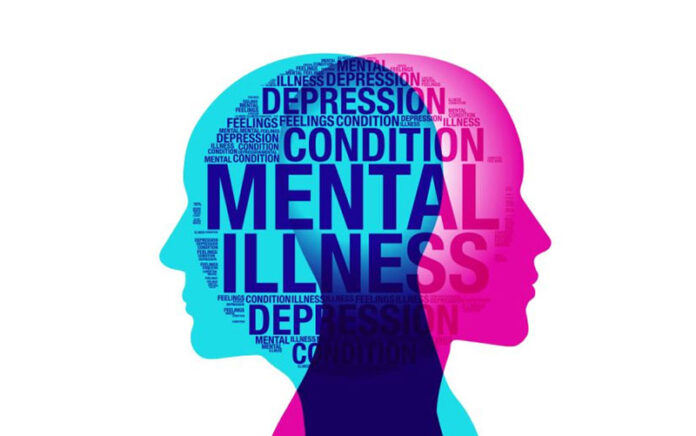In today’s fast-paced world, our mental health plays a crucial role in our overall well-being. Yet, there is still a significant stigma surrounding mental health that prevents many individuals from seeking the help they need. It’s time to break the silence and have an open conversation about the importance of mental health.
In this article, we will explore why mental health matters, how it impacts our daily lives, and the steps we can take to promote better mental well-being. Let’s embark on this journey together and uncover the significance of prioritizing mental health.
Understanding Mental Health
Before we delve into the importance of mental health, it’s essential to understand what it encompasses. Mental health refers to our emotional, psychological, and social well-being. It affects how we think, feel, and act, influencing every aspect of our lives. Just like physical health, mental health exists on a spectrum, ranging from good to poor. Maintaining good mental health involves finding a balance in our emotions, coping with everyday stressors, and building healthy relationships.
The Impact of Mental Health
Our mental health affects us in various ways, influencing both our personal and professional lives. When our mental well-being is compromised, it can lead to a range of challenges and hinder our ability to thrive. Here are some key areas where mental health has a significant impact:
1. Emotional Well-being
Mental health directly influences our emotional well-being. It affects how we experience and express emotions, such as happiness, sadness, anger, and fear. When our mental health is optimal, we can effectively manage our emotions and maintain a positive outlook on life. However, poor mental health can lead to emotional instability, mood swings, and difficulty regulating our feelings.
2. Relationships
Healthy relationships are built on effective communication, empathy, and understanding. Mental health plays a vital role in nurturing these connections. When we prioritize our mental well-being, we are better equipped to form and maintain meaningful relationships. On the other hand, untreated mental health conditions can strain relationships, leading to misunderstandings, conflicts, and feelings of isolation.
3. Productivity and Performance
Our mental health has a direct impact on our productivity and performance, whether at work, school, or in other areas of life. When we are mentally well, we can concentrate, make informed decisions, and perform at our best. Conversely, untreated mental health issues can impair our cognitive abilities, decrease focus and motivation, and hinder our overall performance.
4. Physical Health
The mind and body are intricately connected, and mental health significantly influences our physical well-being. Chronic stress, anxiety, and other mental health conditions can manifest as physical symptoms, such as headaches, digestive problems, and sleep disturbances. By prioritizing mental health, we can reduce the risk of developing physical health issues and promote overall wellness.
The Stigma Surrounding Mental Health
Despite the growing awareness of mental health, there still exists a pervasive stigma that prevents individuals from seeking help. This stigma arises from misconceptions, fear, and lack of understanding. It perpetuates silence and shame, making it challenging for people to open up about their struggles. However, it’s crucial to challenge and break this stigma to create a society that supports mental well-being.
1. Misconceptions and Stereotypes
Mental health stigma is often fueled by misconceptions and stereotypes. People may believe that individuals with mental health conditions are “crazy” or “weak,” perpetuating harmful labels and judgments. However, mental health conditions are not a reflection of one’s character or strength. They are legitimate health issues that can affect anyone, regardless of their background or circumstances.
2. Fear and Discrimination
Stigma generates fear and discrimination, causing individuals to hesitate to seek help. The fear of being judged, rejected, or treated differently can be paralyzing, trapping individuals in a cycle of suffering in silence. This fear prevents people from accessing the support, resources, and treatment they need to recover and thrive.
3. Lack of Understanding and Empathy
Another barrier to breaking the stigma is the lack of understanding and empathy surrounding mental health. Many individuals who have not experienced mental health challenges firsthand may struggle to empathize or comprehend the impact it has on a person’s life. Building empathy and fostering a culture of understanding are crucial in dismantling the stigma and creating a supportive environment.
Breaking the Stigma: Steps Towards Mental Health Awareness
To break the stigma surrounding mental health, it requires collective effort and a change in societal attitudes. Here are some steps we can take to promote mental health awareness and create a stigma-free environment:
1. Education and Awareness
Education is key to challenging misconceptions and increasing awareness about mental health. By providing accurate information and promoting open discussions, we can debunk myths, reduce stigma, and encourage individuals to seek help without fear of judgment. Educational campaigns, workshops, and community programs play a vital role in spreading awareness and fostering understanding.
2. Normalizing Conversations
Creating a safe space for open conversations about mental health is crucial. By normalizing discussions around mental well-being, we can encourage individuals to share their experiences, seek support, and offer empathy to others. This can be done through community events, support groups, or even within our circles by being open and non-judgmental when someone reaches out.
3. Advocacy and Support
Advocacy plays a vital role in breaking the stigma surrounding mental health. By advocating for policies that prioritize mental health care, we can ensure that resources and support systems are in place for those in need. Supporting mental health organizations, volunteering, and raising our voices for change can make a significant impact in creating a more inclusive and supportive society.
4. Self-Care and Well-being
Taking care of our mental health is equally important. By prioritizing self-care and well-being, we become role models for others and show that mental health matters. Engaging in activities that promote relaxation, practicing mindfulness, and seeking professional help when needed are all essential steps towards maintaining good mental well-being.
5. Language and Empathy
The language we use when discussing mental health can have a profound impact. Using respectful and empathetic language eliminates judgment and promotes understanding. It’s important to choose our words carefully and avoid derogatory terms that perpetuate stereotypes. By practicing empathy, we can create an environment where individuals feel safe and supported when sharing their mental health experiences.
Common Misconceptions About Mental Health
Misconception 1: Mental Health is a Sign of Weakness
A prevalent misconception is that experiencing mental health challenges is a sign of weakness or lack of character. This misconception overlooks the fact that mental health conditions are legitimate health issues that can affect anyone, regardless of their strength or resilience. Mental health struggles are not a reflection of personal weakness, but rather a complex interplay of biological, psychological, and environmental factors.
Misconception 2: Mental Health Conditions Are a Choice
Another misconception is that individuals can choose to have or not have a mental health condition. This belief ignores the reality that mental health conditions are not a matter of choice but are influenced by a combination of genetic, biological, and environmental factors. Individuals do not choose to have anxiety, depression, or any other mental health condition any more than they choose to have a physical illness.
Misconception 3: Mental Health Conditions Are Permanent and Untreatable
Many people mistakenly believe that mental health conditions are permanent and cannot be treated. This misconception perpetuates a sense of hopelessness and discourages individuals from seeking help. In reality, mental health conditions are highly treatable, and early intervention can lead to successful outcomes. With appropriate support, therapy, medication, and lifestyle changes, individuals can manage their mental health and lead fulfilling lives.
Misconception 4: Mental Health Conditions Only Affect Certain Types of People
There is a common misconception that mental health conditions only affect certain types of people, such as those who have experienced trauma or have a family history of mental illness. This belief overlooks the fact that mental health conditions can impact anyone, regardless of their background, age, gender, or socioeconomic status. Mental health does not discriminate, and anyone can be vulnerable to developing a mental health condition.
Misconception 5: Seeking Help is a Sign of Weakness or Failure
Many individuals hesitate to seek help for their mental health concerns due to the misconception that asking for support is a sign of weakness or failure. This belief stems from societal pressures to be self-reliant and independent. However, seeking help is a courageous and proactive step towards improving mental well-being. It takes strength to acknowledge when support is needed and to reach out for assistance.
Misconception 6: People with Mental Health Conditions are Violent or Dangerous
A harmful stereotype associated with mental health conditions is the belief that individuals with mental illnesses are inherently violent or dangerous. This misconception is perpetuated by media portrayals that sensationalize rare instances of violence. In reality, the majority of individuals with mental health conditions are not violent, and they are more likely to be victims of violence rather than perpetrators.
Misconception 7: Mental Health Conditions Are Just “Phase” or “Attention-Seeking”
Some people dismiss mental health concerns as temporary phases or attention-seeking behaviors. This misconception diminishes the seriousness of mental health conditions and undermines the experiences of those who are struggling. Mental health conditions are real and can have a profound impact on an individual’s life. It is essential to provide support and understanding instead of dismissing their experiences.
Conclusion
The importance of mental health cannot be overstated. It affects every aspect of our lives and plays a crucial role in our overall well-being. By breaking the stigma surrounding mental health, we can create a society that prioritizes mental well-being, supports those in need, and fosters empathy and understanding. It starts with education, open conversations, and a collective effort to challenge misconceptions.
Let’s embrace the significance of mental health, encourage others to seek help, and work towards a future where mental well-being is valued, understood, and prioritized. Together, we can break the silence and create a world that supports and uplifts everyone’s mental health.








